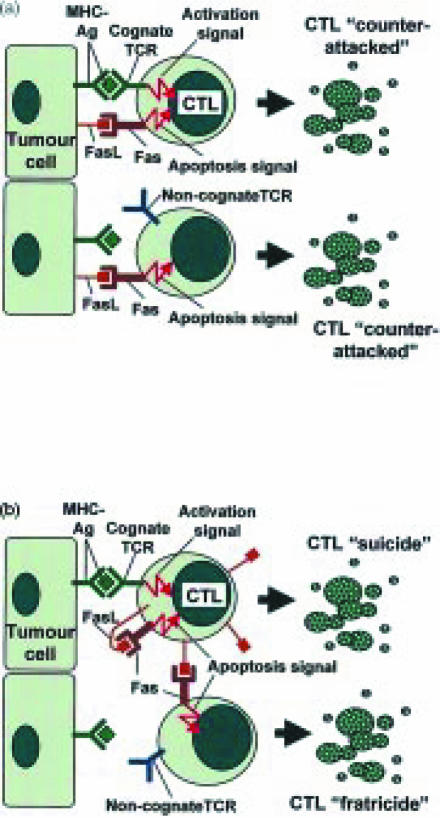Figure 1.
Fas ligand (FasL) and the possible fates of antitumour CTLs. (a) Expression of FasL may enable tumour cells to ‘counterattack’ and kill in vivo-primed CTLs by triggering Fas-mediated apoptosis. Although expression of FasL appears to allow tumour cells to kill both non-cognate and cognate, tumour-specific CTLs, Li et al. provide evidence that killing of cognate CTLs may be more efficient. (b) In the absence of tumour-expressed FasL, CTLs may also undergo apoptosis. MHC–antigen complexes on the surface of tumour cells can trigger TCR-mediated activation of cognate CTLs. Activation induces up-regulation of Fas and FasL on the CTLs, leading to autocrine, Fas-mediated ‘suicide’ (AICD). The up-regulated FasL on cognate CTLs may also induce Fas-mediated ‘fratricide’ of activated, non-cognate CTLs.

